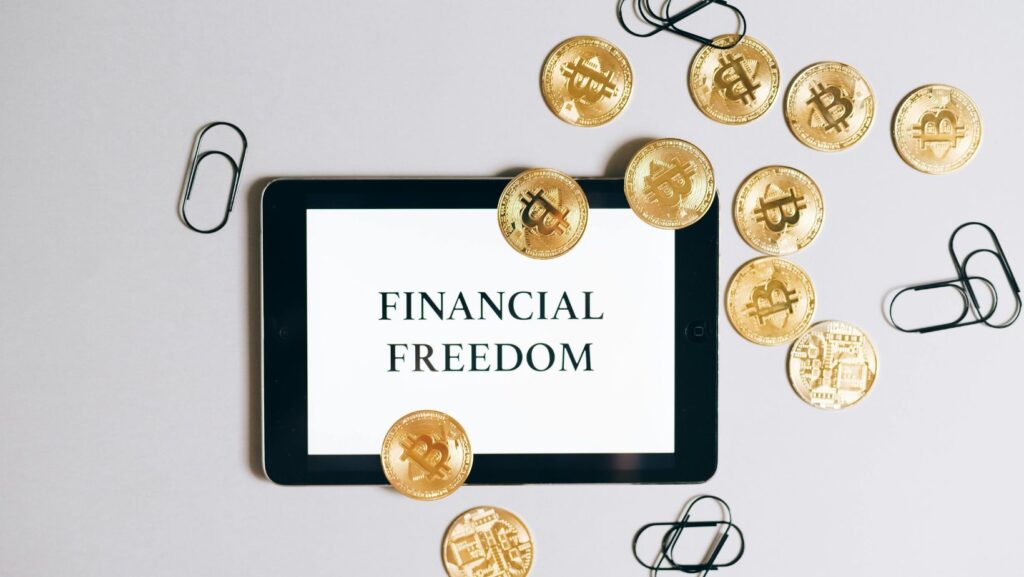Financial freedom is a goal that resonates with many, symbolizing a life where one’s finances are under control, and the future is secure. However, the path to achieving financial independence isn’t one-size-fits-all. Depending on personal circumstances, goals, and values, the approach to reaching financial freedom can vary significantly. This article explores three distinct strategies that individuals can adopt to achieve financial independence, each tailored to different mindsets and life situations.
Saving and Investing Wisely
For those who value security and stability, the conservative path to financial freedom involves diligent saving and wise investing. This approach is grounded in living below one’s means, budgeting effectively, and consistently setting aside a portion of income into savings and investment accounts. The power of compound interest plays a crucial role here, as even modest investments can grow significantly over time. Individuals on this path often prioritize low-risk investments, such as bonds, index funds, and high-yield savings accounts, ensuring steady but reliable growth of their wealth.
A key component of this strategy is developing a strong financial literacy foundation. Understanding how different investment vehicles work, the importance of diversification, and the impact of inflation on savings are essential for success. While the conservative approach may not yield rapid wealth accumulation, it offers a stable and predictable route to financial freedom, making it ideal for those who prefer a cautious and measured journey.
Building Wealth Through Business Ventures
For the more ambitious and risk-tolerant, the entrepreneurial path to financial freedom involves creating and growing businesses. This strategy is centered around identifying opportunities, taking calculated risks, and leveraging one’s skills and passions to build a successful enterprise. Entrepreneurs often reinvest profits back into their businesses, scaling operations and exploring new markets to maximize growth potential.
This approach requires a high degree of dedication, resilience, and adaptability, as the entrepreneurial journey is often fraught with challenges and uncertainties. However, the rewards can be substantial, offering the possibility of significant wealth accumulation in a relatively short period. Unlike the conservative approach, the entrepreneurial path is less predictable and may involve periods of financial instability. Nevertheless, for those with a strong entrepreneurial spirit and a willingness to take risks, this strategy can lead to not only financial freedom but also personal fulfillment and the satisfaction of creating something meaningful.
Financial Freedom Through Simple Living
In contrast to both the conservative and entrepreneurial paths, the minimalist approach to financial freedom emphasizes reducing one’s needs and living a simpler, more intentional life. This strategy is rooted in the belief that financial freedom isn’t just about accumulating wealth but also about reducing dependency on money by minimizing expenses and focusing on what truly matters. Minimalists often prioritize experiences over material possessions, seek to live debt-free, and find contentment in a frugal lifestyle.

The minimalist path involves making deliberate choices to downsize, declutter, and eliminate unnecessary expenses. This might include living in a smaller home, driving a more affordable car, or cutting back on luxury purchases. By significantly reducing their cost of living, minimalists can achieve financial independence with a lower income threshold compared to other approaches. This path is particularly appealing to those who value freedom and flexibility, as it allows them to prioritize time, relationships, and personal growth over the pursuit of wealth.
Exploring Alternative Avenues
Another effective approach to reaching financial freedom is by diversifying income streams. This strategy involves generating income from various sources, rather than relying solely on a single job or investment. Diversification can include side businesses, rental properties, freelance work, and even exploring opportunities. By spreading financial activities across different areas, individuals can reduce risk and create a more resilient financial portfolio. This approach not only accelerates the journey toward financial independence but also provides a safety net during economic downturns or unexpected life events.
Lottery
While the lottery is often seen as a get-rich-quick scheme, it can also be used in a positive way to reach financial freedom. Instead of solely relying on luck, individuals can approach Togel Online (online lottery) as a form of investment. By setting a budget and only using a small portion of their disposable income for lottery tickets, individuals can potentially increase their chances of hitting the jackpot and achieving financial freedom.
Earning Money While You Sleep
One of the most powerful strategies to achieve financial freedom is through passive income. Passive income refers to earnings that require little to no effort to maintain once the initial work is done. Examples include rental income, dividends from investments, royalties from intellectual property, and revenue from online businesses. The beauty of passive income lies in its ability to generate consistent cash flow without the need for ongoing active labor. This can provide financial stability and free up time to pursue other interests or continue building additional income streams.
Creating passive income often involves upfront effort, such as purchasing a rental property, investing in dividend-paying stocks, or developing a product that can be sold repeatedly. However, once these systems are in place, they can produce steady income with minimal maintenance. This approach is particularly beneficial for those looking to supplement their primary income, build wealth over time, or create a financial cushion that provides security and peace of mind.
The Foundation of Financial Freedom
A crucial yet often overlooked component of reaching financial freedom is continuous financial education. Understanding how money works, staying informed about market trends, and learning about new investment opportunities are essential for making informed decisions. Financial literacy empowers individuals to navigate complex financial products, avoid common pitfalls, and optimize their strategies for wealth creation.

Investing in financial education can take many forms, from reading books and attending seminars to following financial news and consulting with experts. In the rapidly changing financial landscape, staying educated ensures that you can adapt your approach as needed and take advantage of new opportunities, such as those in the online and digital finance world. With a strong foundation of knowledge, you can confidently pursue various paths to financial freedom, knowing that you are equipped to handle challenges and seize opportunities as they arise.
Achieving financial freedom is a multi-faceted journey that can be approached in various ways, depending on your goals, values, and circumstances. Whether you choose the conservative path of saving and investing, the entrepreneurial route, minimalist living, or diversifying income streams, each strategy offers unique benefits. By incorporating passive income, continuous financial education, and perhaps exploring opportunities like Togel Online, you can create a robust plan that not only leads to financial independence but also enhances your overall quality of life. The key is to remain adaptable, informed, and aligned with your personal vision of financial freedom.


